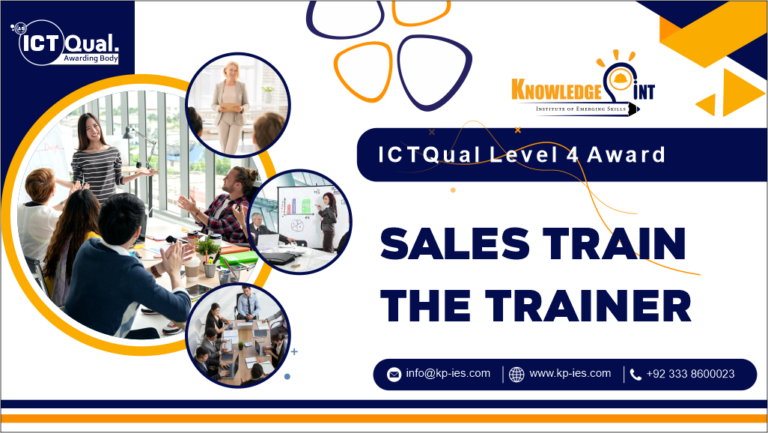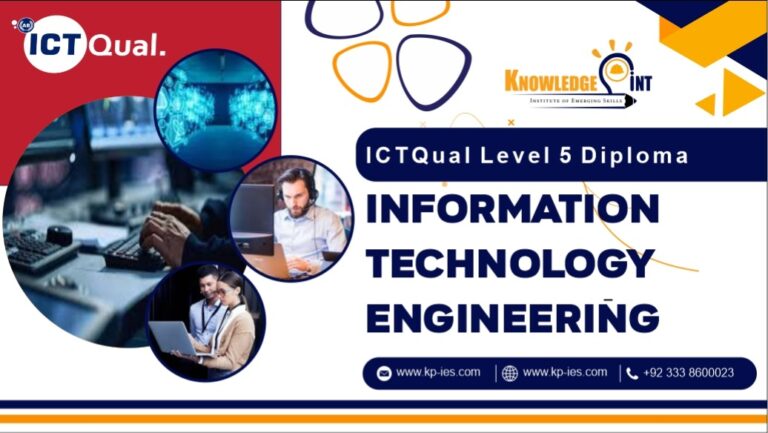Navigating the complexities of people and organizational dynamics is crucial in today’s fast-paced business environment. The OTHM Level 3 Foundation Diploma in People and Organisations offers a solid starting point for those keen on delving into human resources, management, and organizational behavior. This diploma provides foundational knowledge and skills essential for effective people management and organizational development.
The OTHM Level 3 Foundation Diploma in People and Organisations is designed to introduce learners to the core principles of managing people within various organizational contexts. This qualification is perfect for individuals seeking to enhance their understanding of organizational structures, culture, and the role of people in driving business success.
The OTHM Level 3 Foundation Diploma in People and Organisations is an excellent starting point for anyone interested in understanding and managing the dynamics of people within organizations. By covering essential topics in people management, organizational behavior, and HR practices, this diploma equips learners with the skills and knowledge needed to succeed in various business environments. Whether you’re just starting your career or looking to advance, this qualification offers valuable insights and practical skills that will help you thrive in the ever-evolving world of work.
Course Overview
The OTHM Level 3 Foundation Diploma in People and Organisations consists of 6 mandatory units which are as follows.
The learning outcomes of OTHM Level 3 Foundation Diploma in People and Organisations include:
Organisation Structures and their Culture and Values
- Understand Different Organizational Structures: Gain knowledge about various types of organizational structures such as hierarchical, flat, matrix, and networked structures.
- Analyze Organizational Culture: Learn to identify and evaluate the different elements that constitute organizational culture, including norms, values, and beliefs.
- Impact of Culture on Performance: Understand how organizational culture influences employee behavior, motivation, and overall performance.
- Values Alignment: Develop the ability to assess how well an organization’s values align with its mission and strategic goals.
- Cultural Change Management: Learn strategies for managing and implementing cultural changes within an organization.
2. Principles of Organisational Planning
- Foundations of Planning: Understand the importance of organizational planning and its role in achieving business objectives.
- Strategic vs. Tactical Planning: Differentiate between strategic, tactical, and operational planning.
- Goal Setting: Learn how to set SMART (Specific, Measurable, Achievable, Relevant, Time-bound) goals.
- Planning Tools and Techniques: Familiarize with various planning tools and techniques such as SWOT analysis, PEST analysis, and scenario planning.
- Resource Allocation: Understand the principles of effective resource allocation and management to support organizational plans.
3. Managing Human Resources
- HR Functions and Responsibilities: Gain an overview of key HR functions including recruitment, selection, training, and development.
- Performance Management: Understand the principles of performance management and employee appraisal systems.
- Employment Law and Ethics: Learn about the legal and ethical considerations in HR practices.
- Employee Relations: Develop skills to manage employee relations, conflict resolution, and fostering a positive work environment.
- Talent Management: Understand the importance of talent management and strategies for attracting, retaining, and developing top talent.
4. Personal and Professional Development
- Self-Assessment and Reflection: Learn to assess personal strengths, weaknesses, and areas for development.
- Career Planning: Understand the principles of career planning and development.
- Goal Setting for Development: Develop the ability to set personal and professional development goals.
- Continuous Learning: Foster a mindset of continuous learning and development.
- Professional Networking: Learn the importance of professional networking and strategies for building a professional network.
5. Teamwork
- Team Dynamics: Understand the dynamics of working in a team and the stages of team development.
- Roles and Responsibilities: Learn to identify and assign team roles and responsibilities based on individual strengths.
- Effective Communication: Develop skills for effective communication within a team setting.
- Conflict Resolution: Learn strategies for resolving conflicts and managing disagreements within a team.
- Collaborative Problem-Solving: Foster skills for collaborative problem-solving and decision-making.
6. Leadership and Management Skills
- Leadership Theories and Styles: Understand different leadership theories and styles, and their impact on organizations.
- Motivation and Influence: Learn techniques for motivating and influencing team members.
- Decision-Making: Develop skills for effective decision-making and problem-solving.
- Change Management: Understand the principles of change management and how to lead an organization through change.
- Ethical Leadership: Learn the importance of ethical leadership and how to apply ethical principles in management practices.
These learning outcomes aim to equip learners with the necessary knowledge, skills, and competencies to effectively manage and lead within various organizational contexts.
4o
Course Benefits of the OTHM Level 3 Foundation Diploma in People and Organisations :
1. Specialized Expertise
- Auditing Proficiency: Gain specialized knowledge and skills in auditing energy management systems according to the ISO 50001:2018 standard.
- Industry Recognition: Earn a globally recognized qualification that demonstrates your proficiency as an energy management systems auditor.
2. Career Advancement
- Expanded Career Opportunities: Qualify for roles such as Lead Energy Auditor, Energy Management Consultant, or Compliance Officer.
- Higher Earning Potential: Enhance your value to employers and increase your earning potential with specialized expertise in energy management auditing.
3. Industry-Relevant Skills
- Practical Application: Acquire practical skills and techniques for planning, conducting, and documenting energy management system audits.
- Effective Communication: Develop communication skills to interact with auditees, audit teams, and stakeholders effectively.
4. Contribution to Sustainability
- Promotion of Energy Efficiency: Play a key role in promoting energy efficiency and reducing environmental impact within organizations.
- Support for Sustainable Practices: Assist organizations in implementing and maintaining energy management systems that support sustainability goals.
5. Quality Assurance
- Compliance Assurance: Help organizations achieve compliance with ISO 50001:2018 requirements and other relevant regulatory standards.
- Risk Mitigation: Identify areas of non-conformance and provide recommendations for corrective actions to mitigate risks.
6. Continuous Professional Development
- Lifelong Learning: Engage in continuous professional development by staying updated with the latest developments and trends in energy management auditing.
- Networking Opportunities: Connect with industry professionals, auditors, and experts, expanding your professional network and opportunities.
7. Organizational Benefits
- Improved Performance: Contribute to the improvement of organizational energy performance through effective auditing and recommendations for continuous improvement.
- Enhanced Reputation: Help organizations build a positive reputation for their commitment to energy management and sustainability practices.
8. Personal Growth
- Leadership Development: Develop leadership skills to effectively manage audit teams, delegate tasks, and ensure audit objectives are met.
- Confidence Boost: Gain confidence in your abilities as an energy management systems auditor through practical training and hands-on experience.
The OTHM Level 3 Foundation Diploma in People and Organisations provides a strong foundation for further academic and professional pursuits. Upon completing this diploma, learners have several pathways for progression, each offering opportunities for specialization, career advancement, and academic growth.
Further Education and Higher Qualifications
Level 4 Qualifications:
- OTHM Level 4 Diploma in Business Management: This course builds on the foundational knowledge acquired at Level 3, delving deeper into business management principles, marketing, and finance.
- OTHM Level 4 Diploma in Human Resource Management: Ideal for those wishing to specialize further in HR, covering advanced topics in employee relations, strategic HRM, and talent management.
Undergraduate Degrees:
- Bachelor’s Degree in Business Administration (BBA): Many universities recognize the Level 3 diploma as equivalent to entry requirements for a BBA, offering a comprehensive study of business management, marketing, finance, and operations.
- Bachelor’s Degree in Human Resource Management: This degree focuses on developing advanced HR skills and knowledge, preparing students for specialized HR roles within various organizations.
2. Professional Development and Certifications
Chartered Institute of Personnel and Development (CIPD):
- CIPD Level 3 Foundation Certificate in People Practice: This certification enhances HR knowledge and skills, offering practical insights into people management and HR operations.
Project Management Certifications:
- PRINCE2 Foundation: Gaining a project management certification like PRINCE2 can be beneficial for those looking to manage projects and teams effectively within an organizational setting.
3. Career Advancement Opportunities
Entry-Level Roles:
- HR Assistant: Starting as an HR assistant, individuals can apply their foundational knowledge in recruitment, employee relations, and HR administration.
- Administrative Coordinator: Working as an administrative coordinator, graduates can support various organizational functions, including planning and resource management.
Mid-Level Roles:
- HR Officer: With further experience and possibly additional qualifications, individuals can progress to HR officer roles, handling more complex HR tasks and responsibilities.
- Team Leader: Equipped with leadership and teamwork skills, graduates can take on team leader roles, managing small teams and overseeing projects.
4. Specialized Fields and Roles
Talent Management and Development:
- Talent Acquisition Specialist: Specializing in recruiting top talent for organizations, focusing on attracting and retaining skilled employees.
- Learning and Development Coordinator: Managing training programs and professional development initiatives to enhance employee skills and performance.
Organizational Development:
- Organizational Development Consultant: Advising organizations on improving efficiency, culture, and overall performance through strategic planning and change management.
- Employee Engagement Specialist: Focusing on strategies to enhance employee satisfaction, motivation, and retention within the organization.
5. Continuous Learning and Professional Growth
Workshops and Seminars:
- Attending industry-specific workshops and seminars can keep professionals updated on the latest trends, technologies, and best practices in people and organizational management.
Networking and Professional Associations:
- Joining professional associations such as the CIPD or the Society for Human Resource Management (SHRM) provides opportunities for networking, professional development, and staying informed about industry standards.
The OTHM Level 3 Foundation Diploma in People and Organisations opens numerous doors for academic and professional growth. Whether aiming to advance through higher education, gain specialized certifications, or progress in a career, this diploma equips learners with essential knowledge and skills for success. By pursuing further qualifications, engaging in continuous learning, and seeking new career opportunities, graduates can navigate their professional journeys with confidence and competence.







